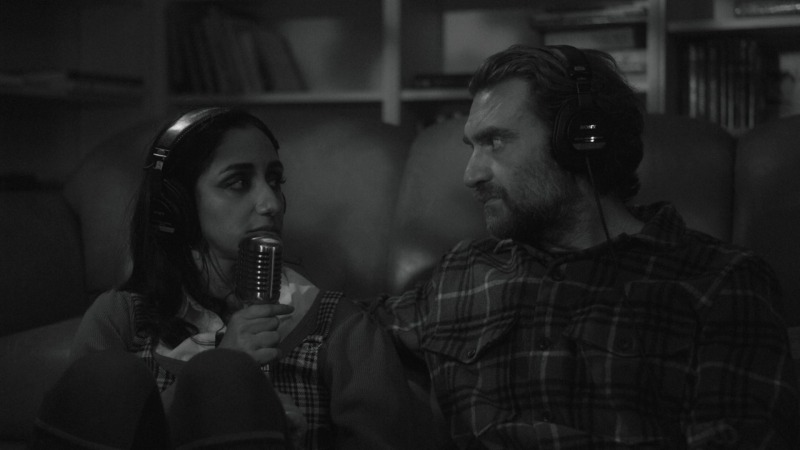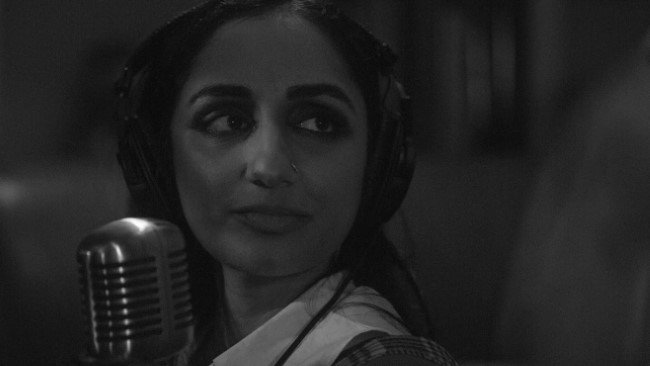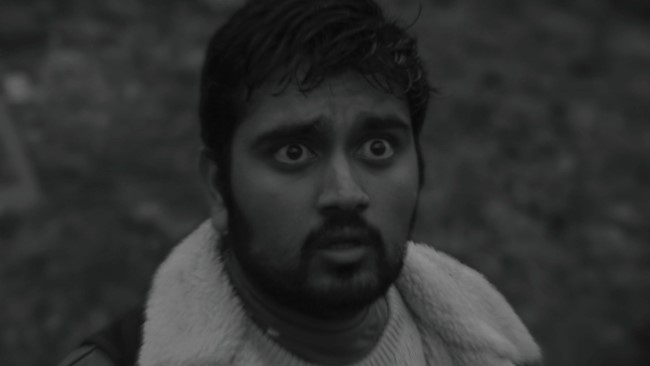A Different Kind of Zombie Flick: Meera Menon, Kiran Deol and George Basil on Didn’t Die

Early in our Sundance journey this year, we discovered one of the experiences that would be one of our favorite of the entire fest – Meera Menon’s zombie flick Didn’t Die. It’s got its fair share of exciting chases, grisly zombie killings, and harrowing situations, but it’s also got some things that many zombie films don’t. The human drama feels real and lived-in, and the tone shifts nimbly from dramatic, to comedic, to adrenaline-fueled and back. It’s an impressive achievement for Menon and her actors, and we sat down to talk to the director flanked by two of those actors, Kiran Deol Sunnyside) and George Basil (Crashing).
Paste Magazine: I think we’ve seen 10 Sundance films so far, and Didn’t Die is our number one favorite, so far, of everything we’ve seen. It’s not even my genre, you know. So I definitely have questions that I wanna wanna ask each of you. Meera, I’d love to to start out with you because one of the things that I really loved about the movie was the way you very deftly handle tonal shifts and some sort of wildly different tones that somehow still work and feel believable and feel natural in the movie. So why don’t you tell us a little bit about that?
Meera Menon: I’m so glad you feel that way. I’m expecting some people to be like, why wasn’t it just one thing? It couldn’t decide what it wanted to be. But to me, it’s because I like all of it, you know. The editor and I would always talk about humor, heart and horror. Those were the three things we were looking for in the movie. And actually heart, humor, horror would be the order of importance for me really. It was a very heart-driven endeavor from the gate. And and for me, yeah, I really wanted to make a zombie movie for people that weren’t necessarily tuned into the genre to begin with, and to really explore the emotionality around it.
And I’ll say in terms of the kind of confidence to be able to execute on something like that, it’s very challenging. I didn’t even know we had done it until the composer stepped in. And he really cohered the movie and all the different things we were doing, whether it’s John Carpenter or “Beautiful Dreamer.” All the different kinds of sonic references in the movie really helped bring that to a place where I was like, ‘oh I think this is actually riding that kind of middle ground that we were really looking for between all of those feelings.’
Paste: In a lot of horror movies when the characters are in crisis the entire time, I find it’s hard for me to to get there and fully identify with them and get in their shoes, because I’ve never been in life threatening crisis 24 hours a day. And I guess because Didn’t Die doesn’t take place right after the zombie outbreak happened, there’s been some time for the characters to get used to it. There’s this really weird sort of pushing up together of kind of an almost normal feeling life with this incredibly horrible thing that’s happening. Insert whatever political metaphor you want here about how we’re all living our lives … And I thought that really showed in both of your performances, the two actors we have here. We’d love to ask you some questions about those performances as well.
George, one of the things that struck me was when we see you come into the meeting place for the podcast meeting. And you just look super shell shocked, which I mean, obviously, everybody is a little bit because of everything that’s going on. But you’re extra shell shocked because of what you just experienced, and you kind of tell the audience about that. And I just loved how you visibly exuded “Holy crap. This crazy thing just happened. And now I’m holding a baby, and I don’t know what to do.” And you’re sort of like looking for help with all of these people who are also in their own states of panic. For some it’s at the surface, you know, for others under the surface, maybe at this point. But everybody doesn’t know what to do. And then you’re just like, let me just give you this baby. I was just curious what you were sort of pulling from for that particular performance, because it really resonated with me.
George Basil: I mean, I exist in that place. I mean moment to moment. You don’t know shit so. It’s life, you know? And in terms of what I used as an actor to get in there, I knew that character Vincent, was all by himself, and I knew he, like everyone else, had dealt with a very traumatic loss, and I thought of him being in that attic, and living alone, and kind of just waiting for whatever comes. And you know, arming yourself and having all these like external defense mechanisms. But in the end you’re just a soft, gooey mess, and we’re all just the same vulnerable thing.
But then, in addition to that, I’m holding this absolutely totally vulnerable thing, this baby. You know, I have a child. I have a 16 year old kid. She’s not a little one anymore, but I remember the feeling of walking across the street and holding her, and being like, my senses, everything, just my alertness, things heightened in a way that I didn’t expect. I didn’t plan. I didn’t learn it. It just falls on you, and you know I tapped right into it, and it wasn’t hard whether it was a baby, the actual baby that I held, or even when it was the weighted dummy. It was real. It was all real. It was always something it was a package to protect. And so yeah, walking in and feeling that sort of tension, and vulnerability was already kind of built in, wasn’t it? I didn’t have to find a motivation. It was in my hands.
Paste: Kiran, your performance in Didn’t Die is such a coming out party for you. I mean, I don’t wanna … I don’t want to call it a breakthrough, because obviously you’re already a successful actor. But wow, it’s just a star-making turn for you. I think I was so impressed with your performance, how in such an unnatural situation, at how natural it was. I never for a second felt like it was a performance. It really just felt like I was watching this character go through this stuff, you know, and it wasn’t even until after the movie that I said, ‘Oh, my God! That was a great performance.’ One of the things that I thought as I was looking back at it was, you know, the whole movie hinges, I think, on your relationship with each character. We’re primarily concerned with the other characters inasmuch as they relate to you, and you relate to them. Always, a lot falls on every lead character’s shoulders, but especially on yours in this film, because you also carry the weight of sort of bringing all those other characters to us. And you have very different feelings about each of those characters. I’m wondering how you kept that straight in your mind, these very complicated backstories with each of these people, very emotionally fraught backstories with each of these people that the whole movie hinges on us believing.

Kiran Deol: Yeah, that’s a great question, and a very astute question. And thank you. Thank you so much. That’s so kind. I think you can only play an arc if you are given an opportunity to get to play a character that you see from the beginning, middle and end. So it felt like a really big privilege to get to exercise that muscle. And I think, because Meera and I have collaborated before and done an independent film before, it was easier. That’s an advantage when you’re a small movie is that everyone’s so down to work, everyone wants to be there. And the one thing you really have control over – you don’t have the budget, you don’t have whatever – is the relationships, and how you can build the relationships with each individual character. So that’s something process-wise I take very seriously before we ever start filming.
-

-

-

-

-

-

-

-

-

-

-

-

-

-

-

-

-

-

-

-

-

-

-

-

-

-

-

-

-

-

-

-

-

-

-

-

-

-

-

-









































